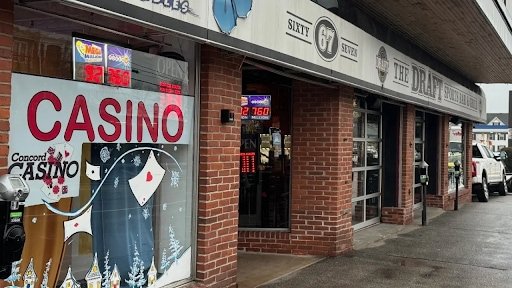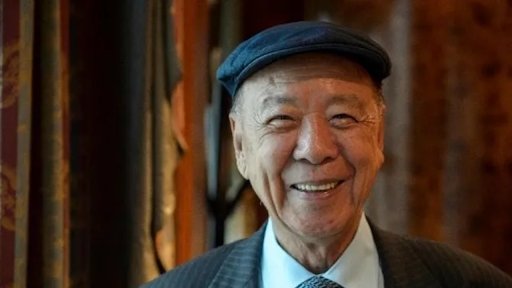The New Hampshire Attorney General’s Office has made a significant ruling that impacts the future of Andy Sanborn’s Concord Casino. The state has decided to block the resumption of charitable gaming at the casino, effectively preventing Sanborn’s attempts to sell the venue to a new owner. This move follows nearly two years of legal battles over Sanborn’s alleged misuse of $844,000 in federal pandemic relief funds, and it raises important questions about the broader implications for charitable initiatives in the community.
Sanborn, a former state senator and owner of the Concord Casino and the Draft Sports Bar and Grill, has been under intense scrutiny since an investigation was launched into his financial practices. The investigation found that Sanborn had allegedly misrepresented the revenue figures of his casino in order to secure additional funds from the Main Street Relief Fund. This federal program was designed to help small businesses during the COVID-19 pandemic. According to the state, Sanborn distorted his casino’s gross receipts, which resulted in an overpayment of grant money. As a result, Sanborn and his casino, Win Win Win, which operates the Concord Casino, face felony theft charges.
In December, a judge ordered Sanborn to close and sell his casino, giving him a limited timeframe to do so. While the deadline has been extended multiple times, the pressure on Sanborn is mounting. He faces the potential loss of his casino license if the sale does not go through soon. Despite Sanborn’s legal team actively seeking a buyer, the state’s refusal to allow charitable gaming to resume has complicated the situation. The casino has been a significant revenue source for public education and other charitable causes, and the state’s decision to halt its operations could have long-lasting effects on these programs.
Sanborn’s attorneys argue that the state’s objections are not related to the buyer’s qualifications but are instead focused on the sale’s financing. They insist that the buyer has a clean record, and that the state has not given the buyer sufficient opportunities to address any concerns. During a recent hearing, Adam Katz, one of Sanborn’s lawyers, pointed out that there was no criticism of the buyer’s background. This has led Sanborn’s legal team to accuse the state of intentionally obstructing the sale process, a claim that the Attorney General’s Office has strongly denied.
Jessica King, Senior Assistant Attorney General, countered these accusations, saying the state has been cooperative throughout the process. She emphasized that the state has held multiple discussions with the potential buyer, and the New Hampshire Lottery Commission has worked diligently to ensure the buyer’s suitability. The back-and-forth between Sanborn’s legal team and the state underscores the contentious nature of this legal dispute.
This ongoing battle not only affects Sanborn’s business but also raises concerns about the future of charitable gaming in New Hampshire. The Concord Casino has played a vital role in supporting various charitable causes, and its closure would result in a substantial loss of funding for public education and nonprofit organizations. In 2023 alone, Sanborn’s casino raised nearly $170,000 for charities, and many community stakeholders are concerned about the negative impact of losing this revenue.
As the case moves forward, Sanborn’s legal team continues to challenge the Attorney General’s actions in an effort to protect their client’s interests and ensure that the sale of the casino can proceed. The complexities of the case are heightened by the legal ramifications of the pandemic aid fraud allegations, which could have long-term effects on Sanborn’s ability to operate in the gaming industry. The state’s decision to block the return of charitable gaming at the Concord Casino marks a critical moment in this legal saga, with consequences that extend beyond Sanborn himself to the community that benefits from the casino’s charitable contributions.
In conclusion, the New Hampshire Attorney General’s decision to halt charitable gaming at Andy Sanborn’s Concord Casino has set the stage for a pivotal moment in the ongoing legal battle. With felony theft charges looming and the state’s refusal to allow charitable gaming to resume, Sanborn faces an uphill struggle in selling his casino and clearing his name. The outcome of this case will not only determine Sanborn’s future in the gaming industry but also impact the charitable organizations that rely on the casino’s support. As the legal battle continues, the stakes remain high for both Sanborn and the community.
Related posts:












